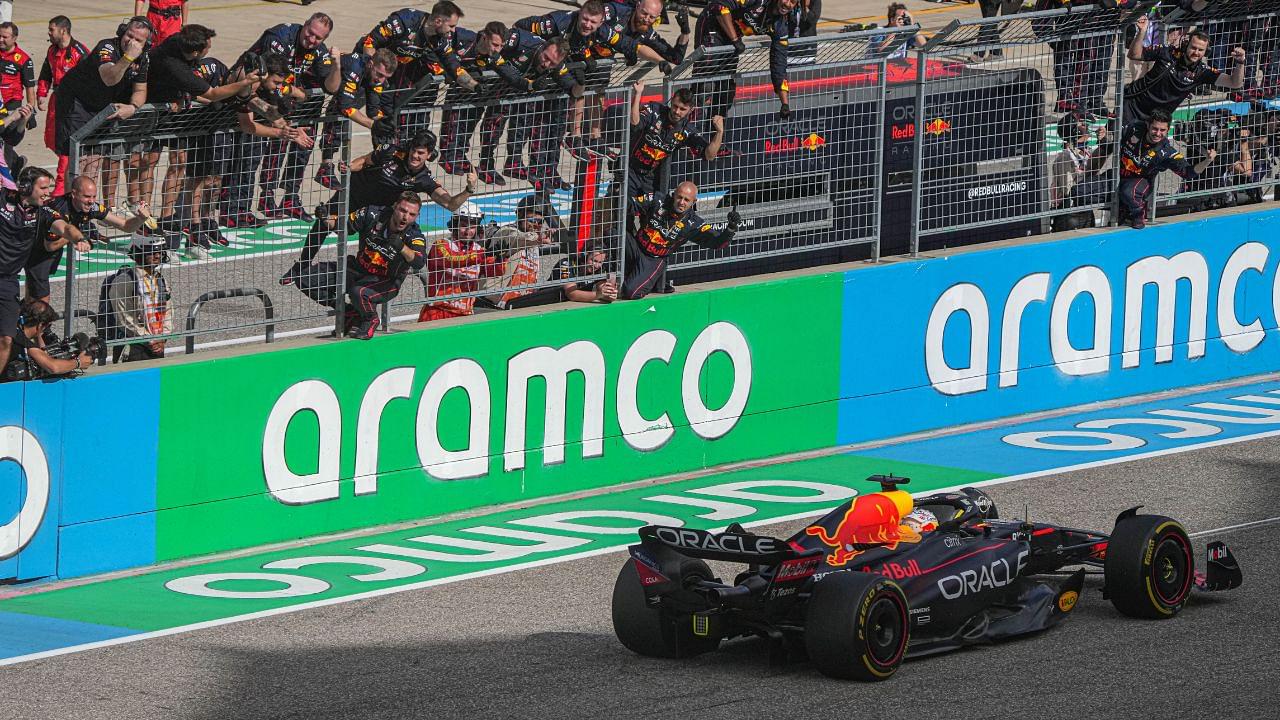Since 2021, all Formula 1 teams must strictly adhere to the FIA’s cost cap. But in the light of Red Bull Racing’s budget breach, the ruling has come under scrutiny and has exposed a major flaw in F1’s aim to level the racing field.
Based on the Financial reports of the 2021 season, two teams were found to have breached the cost cap. And both Red Bull and Aston Martin faced the swinging hammer of the Cost Cap Administration.
Aston Martin was fined $450,000 for a procedural breach. But Red Bull was severed with such severe punishment as the team went over the mandated limit by $2.2 Million.
“This is from the FIA so we’re not going to deduct it from the cost cap”
The FIA president was wilding 💀pic.twitter.com/60VTojDoeM
— Mari (@very_berry99) December 9, 2022
But with the Bulls dominating the 2022 season and walking away with the 2021 Drivers championship, the fairness of their penalty has been widely debated. And it seems F1 teams have not been playing it ‘by the books for a long time.
What is the F1 Cost Cap, and how did Red Bull cheat?
Formula 1 is an expensive sport, and naturally, it favours teams with deep pockets. Old established teams like Ferrari, Mercedes, and Red Bull can naturally spend more money and resources on developing winning cars which is a disadvantage to smaller teams like Williams or Haas.
Hence, the $140 Million spending limit was introduced in 2021 to curb the spending of F1 teams. This was originally a $175 Million limit but was lowered after the Covid-19 pandemic.
Any costs related development of a car barring engines, and driver salary, are included in the Cost cap. This includes the cost for parts on the car, key equipment, raw material and transport, along with the salaries of team personnel.
$7m fine for Red Bull plus a 7% deduction to their wind tunnel testing time (10% of their allotted time of 70%) after admitting their guilt in the ABA. #F1. pic.twitter.com/XgnNsRIJ5A
— Jennie Gow (@JennieGow) October 28, 2022
During the 2021 season, Red Bull overspent the budget by nearly $2.2 Million. The extended costs were due to “gardening and sick leave expenses”, catering, spare inventory and an incorrectly applied tax rebate.
The team were fined $7 Million, along with a 10% deduction of their 2023’s car wind tunnel and CFD time. But this also raised a question regarding the legitimacy of their titles, considering the team overspent.
Max Verstappen won the title in 2021 in a controversial ending. And the team walked over the rest of the grid to win drivers and constructors titles in 2022.
Some asked for Red Bull to be stripped of their titles, but the FIA did not go this far. However, team principal Christian Horner believed there would be more discrepancies in the future and that the team weren’t in the wrong like many claims.
Also Read: At least 6 teams set to breach 2022 cost cap, warns Red Bull’s Christian Horner
How do all F1 teams cheat, and what can be done to prevent it?
With the Cost cap, Formula 1 has garnered a good image of reducing excessive spending. But dictating a stringent policy means the teams have found other means to operate and stay under the cap limit.
According to BusinessF1, the top five teams maintain two sets of books. One set of actual books and one set of books for the FIA Cost Cap Administration to review.
This is the only way teams can meet the Cost Cap in 2022. The system would have had a chance to work effectively if enforcement had been made voluntary and self-policing.
Zak Brown reckons F1 should think about relaxing its technical rule book now that a cost cap is in place 🛠
Do you agree with Zak? 🤔#F1 #Autosport #McLaren pic.twitter.com/st8zhBVIdU
— Autosport (@autosport) December 27, 2022
Tom Rubython suggested solution is an all-encompassing Cost Cap. This will include drivers’ salaries, wages of the three highest-paid staff members, Travel costs, Marketing spending and others not included in the current cap.
This could be set at $300 Million and adjusted for inflation. This would still dwarf teams’ spending pre-2020 and dampen the extravagant driver earnings. It would have kept costs sensible and allowed teams to enable self-policing.
As it seems, the tricks of the teams are soon to resurface. And F1 will soon have a revolt between teams and FIA regarding the limits.
Also Read: Toto Wolff says breaching budget cap because Red Bull did it is ‘not worth it’







